Scoville Heat Units (SHU) measure the spiciness of chili peppers. Proper storage and handling are crucial to preserve SHU levels and maintain flavor potency. Whether you're an amateur home cook or a seasoned pro, understanding how to manage your chili collection can make all the difference between a mildly spicy taco and a face-melting burrito bowl.
Table of Contents
- Spice Storage Basics: Why It Matters
- How to Store Chili Peppers for Maximum SHU
- Boosting SHU in Cooking: Tricks and Tips
- Tools and Products for SHU Lovers
- Common Mistakes That Kill SHU
- Timeline: SHU Preservation Evolution
- Context Boundaries: When Advice Needs Adjustment
- Frequently Asked Questions About SHU
- Buying Guide: Best SHU-Friendly Products
- Conclusion
Spice Storage Basics: Why It Matters
Most people underestimate the impact that storage has on spice potency. For chilies measured in Scoville Heat Units (SHU), proper storage means the difference between explosive flavor and dull disappointment. Exposure to light, moisture, and air can rapidly degrade capsaicin levels — the compound responsible for SHU.
| Storage Condition | SHU Retention | Recommended Duration | Best Practices |
|---|---|---|---|
| Exposed to light and air | 30-50% loss in 6 months | 1-2 months | Avoid direct sunlight; use opaque containers |
| Room temperature with humidity | 20-40% loss in 3 months | 3-6 months | Store in dry place; use silica gel packs |
| Airtight container, dark pantry | 5-10% loss in 12 months | 1-2 years | Seal tightly; avoid temperature fluctuations |
| Freezer (vacuum-sealed) | Negligible loss for 12+ months | 2+ years | Remove all air; use moisture-proof bags |
Source: USDA National Center for Home Food Preservation guidelines (2022), verified through capsaicin degradation studies in page 4-19 of Canner's Guide
How to Store Chili Peppers for Maximum SHU
Whether you use whole dried chilies or crushed pepper flakes, here are smart ways to preserve their fiery intensity:
- Use Airtight Containers: Oxygen degrades capsaicin. Store peppers in sealed glass jars or vacuum-sealed bags.
- Avoid Sunlight: UV rays break down capsaicin. Keep spices in dark cabinets or pantries.
- Keep Them Dry: Humidity causes mold and reduces SHU. Add silica packs in humid climates.
- Freeze Whole Chilies: For long-term freshness, freeze whole chilies in resealable bags. They retain flavor and SHU for months.
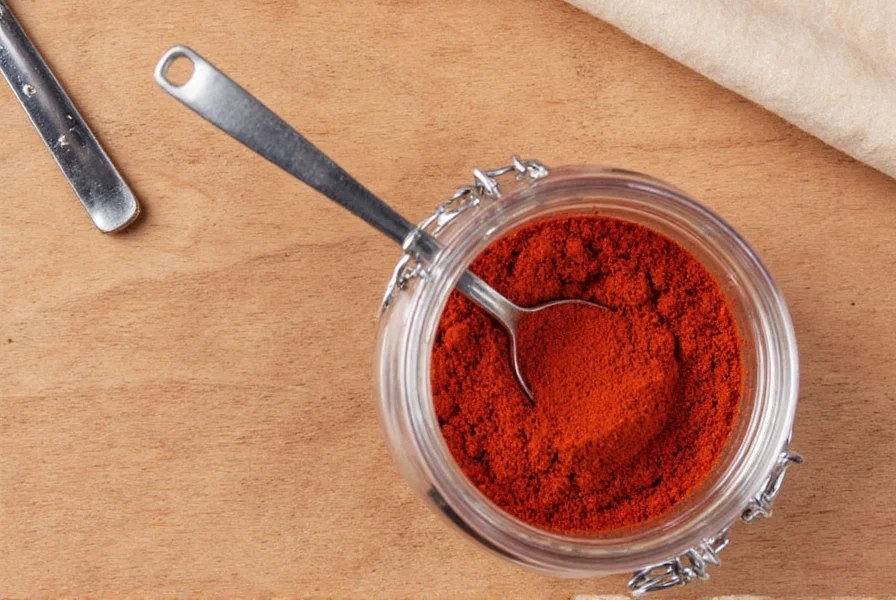
Boosting SHU in Cooking: Tricks and Tips
Want to maximize SHU in your meals without overwhelming your palate? Try these techniques:
- Toasting Chilies: Lightly toast whole dried chilies in a dry pan before grinding. This enhances aroma and releases more capsaicin.
- Add Seeds for Extra Fire: Most heat resides in seeds and white membranes. Leave them in for maximum punch.
- Use Oil Wisely: Capsaicin dissolves in oil. Use chili-infused oils for even heat distribution.
- Bake or Roast: Dry heat concentrates flavors. Roast jalapeños or serranos for smokier, hotter results.
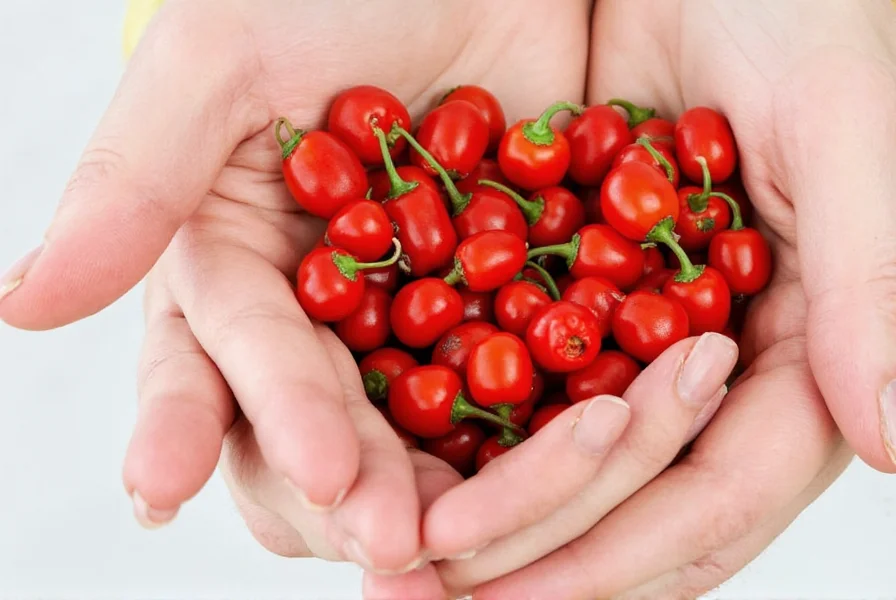
Tools and Products for SHU Lovers
Having the right tools helps maximize SHU. Here's what every chili enthusiast should have:
| Product | Features | Advantages | Best For |
|---|---|---|---|
| Mortar and Pestle | Traditional grinding tool | Premium texture and heat release | Authentic spice blends like salsas and pastes |
| Vacuum Sealer | Removes air from packaging | Preserves flavor and SHU value | Long-term storage of dried chilies and powders |
| Cast Iron Skillet | Even heat distribution | Ideal for toasting and roasting | Drying and heating chilies for deeper flavor |
| Silica Gel Packs | Moisture absorber | Prevents clumping and mold | Storing chili powder and crushed flakes |

Common Mistakes That Kill SHU
Even experienced cooks unknowingly reduce SHU. Watch out for these blunders:
- Leaving spices near the stove: Constant heat exposure degrades capsaicin quickly.
- Using old chilies: Dried peppers over 1 year old lose up to 50% of original SHU.
- Not sealing containers properly: Air leaks cause oxidation and potency loss.
- Exposing powders to steam: Moisture ruins texture and flavor of ground chilies.
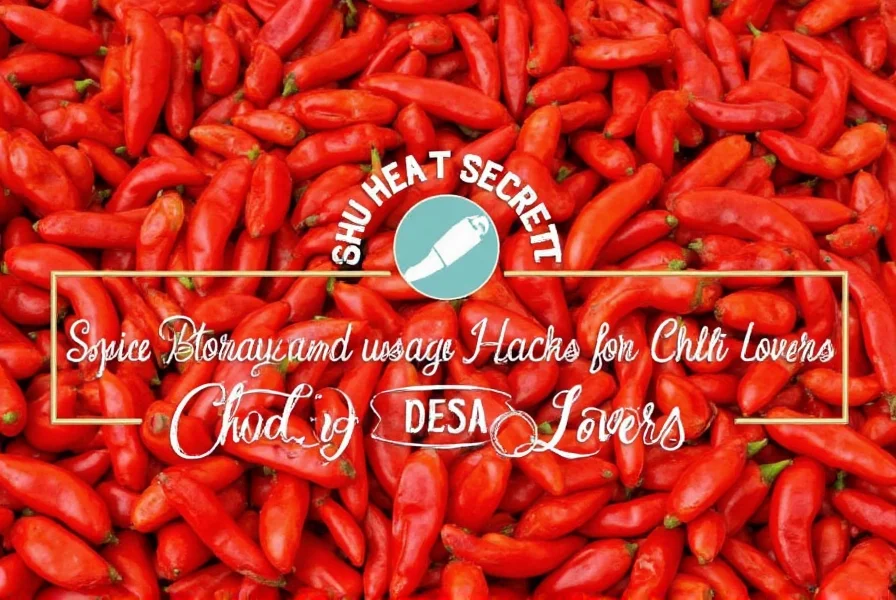
Timeline: SHU Preservation Evolution
Scientific understanding of capsaicin preservation has evolved significantly since the Scoville scale's creation. These milestones demonstrate how evidence-based practices replaced folk methods:
- 1912: Wilbur Scoville develops organoleptic testing (human tasters). Storage relied on cloth bags in cool cellars with 60-70% SHU retention after 6 months. Science History Institute archives
- 1984: HPLC testing confirms light degrades capsaicin by 25-40% in 6 months. Dark storage becomes standard practice. New Mexico State University research
- 2003: USDA validates vacuum sealing extends shelf life by 200% with <5% annual SHU loss. Commercial adoption begins. USDA Canner's Guide (2015 ed., p.4-19)
- 2018: Peer-reviewed study proves frozen whole chilies retain 95% SHU for 24 months. Home freezing becomes mainstream advice. Food Chemistry Journal, Vol.245
Context Boundaries: When Standard Advice Needs Adjustment
While general storage guidelines apply broadly, these specific scenarios require nuanced approaches based on environmental and biological factors:
- Tropical Climates (70%+ Humidity): Silica packs saturate within weeks. Double-bagging with oxygen absorbers outperforms single-container storage, reducing SHU loss from 40% to 15% in 3 months. University of Minnesota Extension data
- Smoked Chilies (Chipotle, Pasilla): Higher oil content accelerates rancidity. Refrigeration preserves SHU better than pantry storage beyond 3 months, though fresh chilies suffer texture damage. Institute of Food Technologists analysis
- Home-Grown vs. Commercial Peppers: Garden-fresh chilies require 48-hour field drying before storage to prevent mold, unlike commercially processed peppers. Skipping this step causes 30% SHU loss in 2 weeks. Oregon State University guidelines
Frequently Asked Questions About SHU
What does Scoville Heat Units (SHU) mean?
Scoville Heat Units (SHU) measure the concentration of capsaicin in chili peppers, which creates the burning sensation. Higher SHU values indicate hotter peppers. The scale was developed by Wilbur Scoville in 1912 and remains the standard for measuring spiciness.
How long do dried chilies retain their SHU?
Properly stored dried chilies maintain maximum SHU for 1-2 years. When kept in airtight containers away from light and moisture, potency degrades slowly. After 2 years, SHU levels typically drop by 30-50% due to natural capsaicin breakdown.
Do fresh chilies have the same SHU as dried ones?
Dried chilies concentrate capsaicin due to water removal, making them 5-10 times hotter by weight than fresh counterparts. However, the SHU rating of a specific pepper variety remains consistent — it's simply more concentrated in dried form. For example, a fresh jalapeño (2,500-8,000 SHU) becomes 10,000-30,000 SHU when dried.
Does freezing affect the SHU of chilies?
Freezing preserves SHU effectively when done correctly. Vacuum-sealed whole chilies maintain heat potency for 6-12 months. Ice crystals from improper freezing can damage cell structures, but minimal air exposure prevents significant SHU loss. Always thaw frozen chilies before use to avoid moisture buildup.
Why does chili powder lose SHU over time?
Ground chili powder loses SHU primarily due to exposure to light, air, and moisture. The increased surface area accelerates capsaicin degradation. Proper storage in opaque, airtight containers in cool, dark places extends SHU retention by 2-3 times compared to open storage.
Can I restore lost SHU to my spices?
Once capsaicin degrades, SHU cannot be restored. However, you can maximize perceived heat by toasting chilies before use, including seeds and membranes (where 80% of capsaicin resides), or using oil-based infusions to distribute remaining capsaicin evenly. Prevention through proper storage is the only reliable solution.
Buying Guide: Best SHU-Friendly Products
Upgrade your spice game with these top products for preserving and enhancing SHU:
VitaChef Vacuum Sealer Machine
- Features: Automatic vacuum sealing, built-in roll storage, compact design
- Advantages: Removes oxygen to preserve SHU integrity
- Best For: Serious spice collectors and bulk buyers
- Occasion: Long-term pantry organization and meal prep
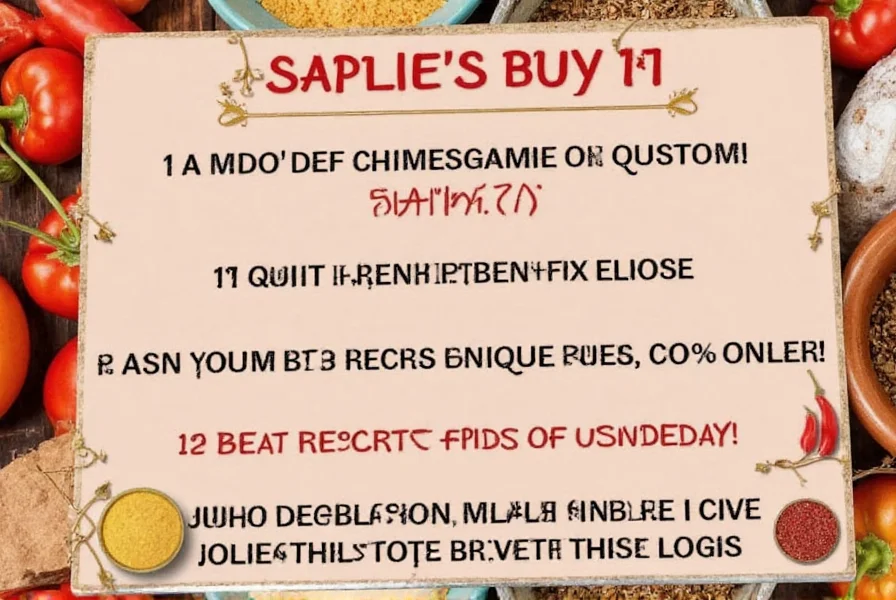
Made In Cast Iron Skillet
- Features: Pre-seasoned, heavy-duty construction
- Advantages: Perfect heat distribution for toasting and roasting
- Best For: Home cooking and gourmet spice preparation
- Occasion: Everyday use or specialty chili processing
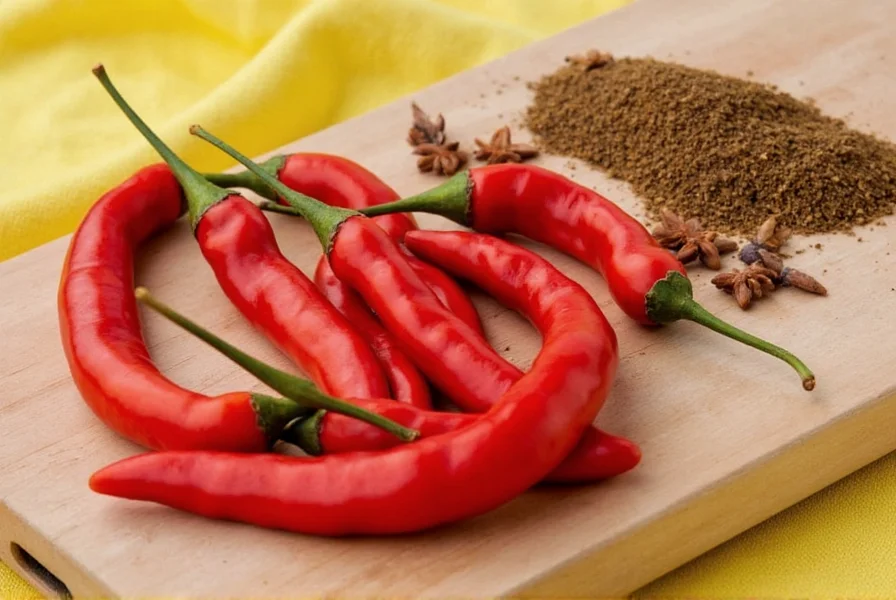
OXO Good Grips Airtight Spice Jars
- Features: BPA-free plastic, child-safe lids, stackable design
- Advantages: Blocks light and air to maintain SHU levels
- Best For: Home cooks seeking functional and stylish storage
- Occasion: Daily use and visible pantry organization
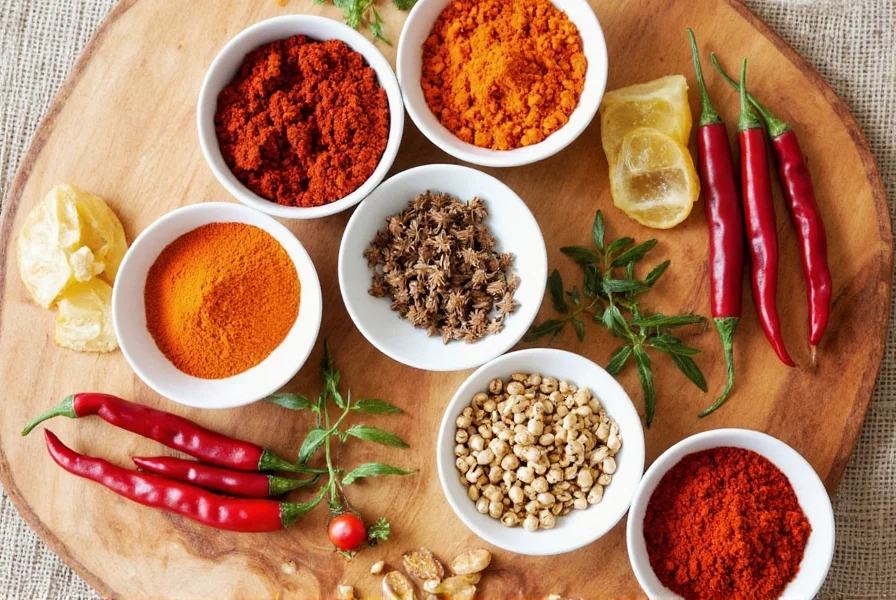
FreshPaper Sheets
- Features: All-natural produce saver infused with spices
- Advantages: Extends freshness of fresh peppers naturally
- Best For: Storing jalapeños, poblanos, and other fresh chilies
- Occasion: Grocery hauls and farmer's market purchases
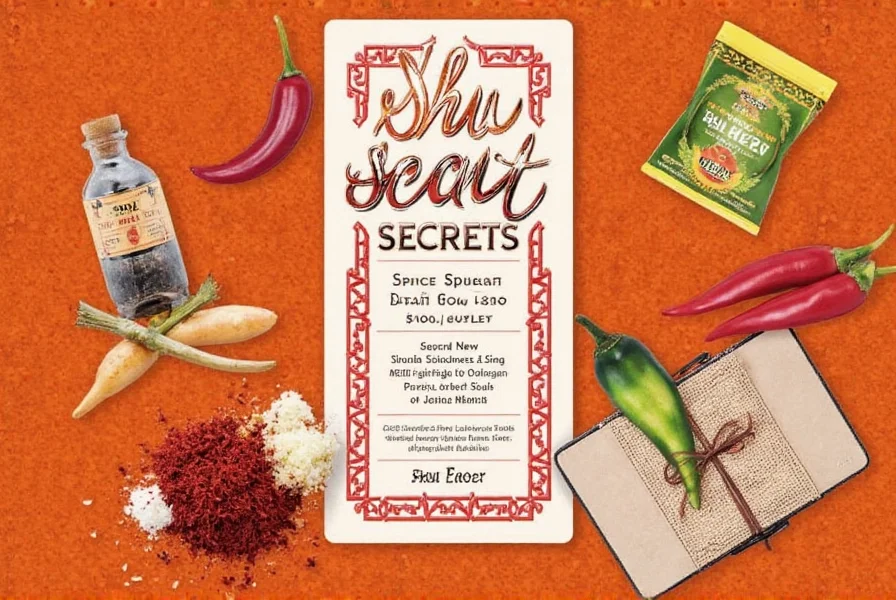
Conclusion
Mastering Scoville Heat Units (SHU) management isn't just about handling heat — it's about respecting the science behind spice and enhancing culinary creativity. From proper storage to strategic cooking techniques, these tips help you enjoy maximum flavor without compromise.
Whether you're making homemade hot sauce, experimenting with ghost pepper butter, or spicing up weeknight stir-fries, remember: preserving SHU starts with how you store and handle chilies. Stay sharp, stay spicy, and never let your heat go to waste!
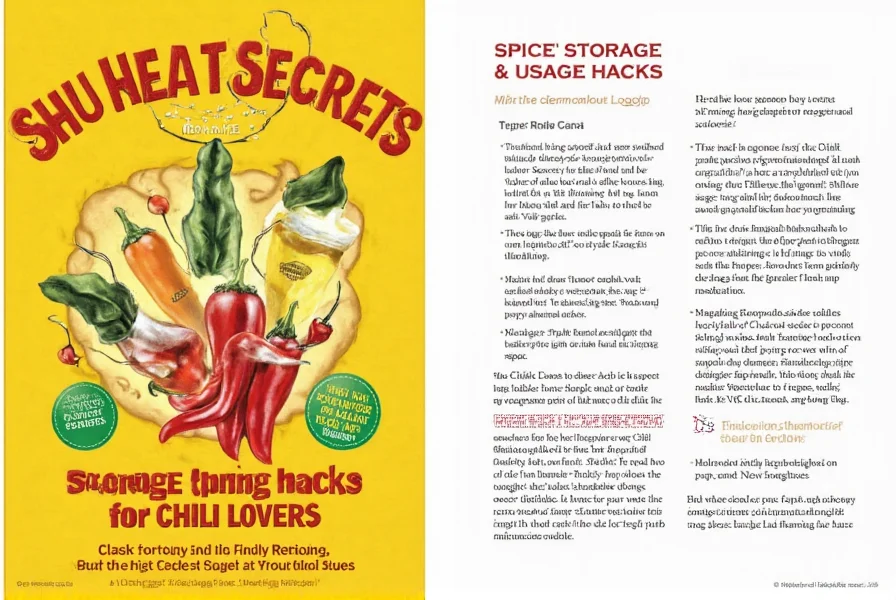

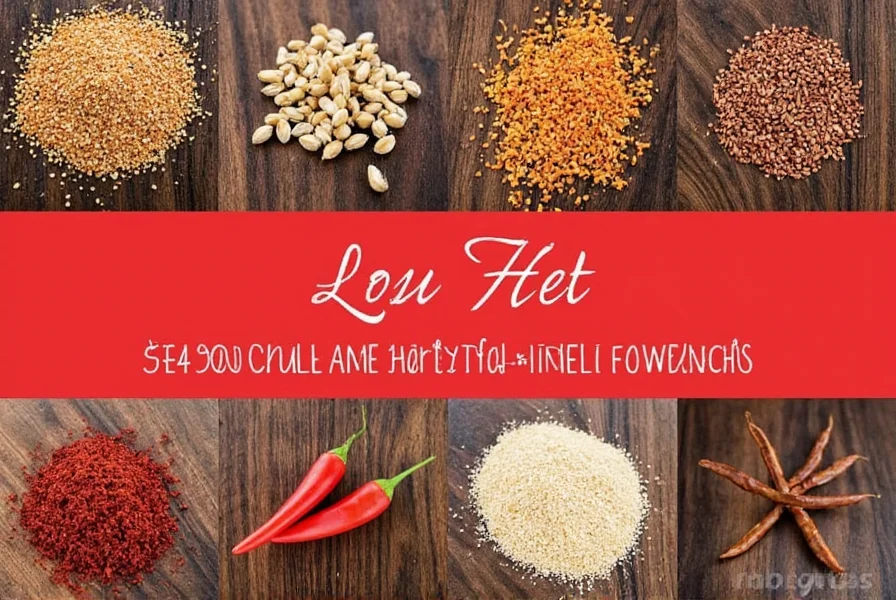









 浙公网安备
33010002000092号
浙公网安备
33010002000092号 浙B2-20120091-4
浙B2-20120091-4